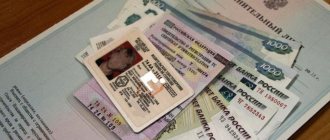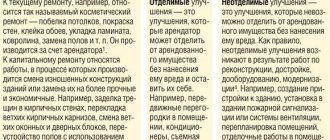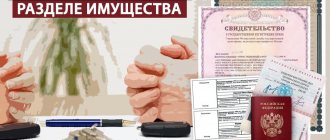- Debtor's rights
- The procedure for inventorying property
If a person has accumulated loans, is in debt to someone and does not seek to repay the debt, then sooner or later his property may be arrested and even confiscated. The measure is necessary to stimulate debt repayment and does not mean that the apartment or car will be taken away immediately. Who can seize the debtor’s property and what the consequences are - read on.
Letter of the law
The Federal Bailiff Service (FSSP) encourages the debtor to repay the debt in order to satisfy the interests of the collectors. As part of the execution of court decisions, bailiffs collect money in different ways: they withdraw money from cards, restrict the debtor’s movements, and work with his property.
Arrest and confiscation are not the same thing.
Seizure of the debtor's property means that an apartment, car or other property cannot be sold, exchanged, given as a gift or made the subject of collateral - the status of property under arrest is enshrined in law. Redevelopment is not permitted in residential premises. At the same time, the owner can freely use real and movable property that is under arrest.
Subsequently, it is possible to confiscate such property and sell it at auction - but this requires an appropriate decision and court order.
The legislation does not allow the seizure of property put up as collateral if the claimant does not have priority rights.
For example, a bailiff will refuse to seize a home to a creditor to whom the borrower owes 150 thousand rubles if his apartment worth 3 million rubles is pledged to another creditor. In addition, the principle of proportionality between the amount of debt and the estimated value of the property subject to seizure also plays a role here.
Is it possible to seize the pledged property?
The current legislation prohibits the seizure of property that is pledged. At the same time, the Constitutional Court indicated that the rights of the pledgee in the event of the sale of such property are not violated due to the preservation of the pledge itself (Determination of the Constitutional Court of the Russian Federation dated May 25, 2017 N 1093-O).
The FSSP gave detailed interpretations of the actions of bailiffs seizing such property. Thus, property that is pledged can be sold in order to pay the claims of creditors who are not mortgagors.
The pledged property may be seized if a third party (another creditor) has a priority right over the pledgee. Judicial practice confirms the above.
Thus, the seizure of pledged property in order to satisfy the claims of a third party is carried out to secure his demands (Determination of the Supreme Arbitration Court of the Russian Federation dated October 23, 2013 N VAS-14560/13 in case N A73-13591/2012).
IMPORTANT : the main thing is that the bailiff does not take actual measures to foreclose on the mortgaged property. Then the actions of seizing the pledged property without presenting evidence of a real violation of the rights and legitimate interests of the pledge holder or other persons as a result of the issuance of a contested decision by the bailiff will not occur.
Grounds and exceptions
Arrest, as a preventive measure, allows:
- guarantee the safety of property during legal proceedings and exclude the sale and receipt of benefits by the debtor instead of paying the debt;
- execute a specific resolution on the seizure of the debtor’s property (or already confiscation);
- satisfy the claim from the claimant (in some cases the bailiff has the right to seize property even without a judicial act).
Seizure of the debtor's property by bailiffs is used if a person has debts for loans and alimony, for housing and communal services and fines, for compensation for moral and material damage. Other situations are also possible. For example, a person could flood his neighbors: then, at the justified request of the victims, his apartment will be seized during the litigation.
Arrest at the request of the claimant
The lender has the right to apply to the FSSP to seize the defendant’s property for debts both before the trial and during the process of executing the court decision on collection.
The application is written at the place of registration of the debtor - you can directly send it to the bailiff. The paper contains the following information:
- number of enforcement proceedings and name of the court where the hearing is taking place;
- whether the deadline for voluntary debt repayment has passed;
- amounts contributed by the debtor (if any);
- everything that is known about the debtor’s property (an application can also be submitted without specifying specific property).
The bailiff must notify the applicant within 24 hours of the satisfaction of the request or refusal.
What property cannot be seized?
Legally immune from arrest
and exemptions have:
- household appliances necessary for everyday life (for example, a refrigerator), furniture, household accessories (bedding, dishes, etc.) - except for luxury items;
- professional equipment and tools costing no more than 10 thousand rubles;
- food: for food, even if it is red or black caviar, no one will encroach on it;
- pets that are not the object of sale or business (we are talking about nurseries, zoos, dolphinariums, etc.);
- funds in the amount of up to 1 subsistence level for the debtor and his dependents.
Thus, bailiffs will not be able to seize property listed in 446 Code of Civil Procedure of the Russian Federation - the law says so.
Code of Criminal Procedure of the Russian Federation Article 115. Seizure of property
- Seizure cannot be imposed on property that cannot be foreclosed on in accordance with the Civil Procedure Code of the Russian Federation.
“Criminal Procedure Code of the Russian Federation” dated December 18, 2001 N 174-FZ.
Read completely
Source
The only housing
The debtor (apartment or plot with a house)
can be arrested
, but cannot be seized and sold.
This measure excludes the independent sale of housing and the receipt of unaccounted money.
Seizure laws
In general, there are two legal directions that regulate the seizure of any property.
For companies, Article 77 of the Tax Code is applicable, and for individuals, Art. 115 Code of Criminal Procedure of the Russian Federation .
There are a lot of cases that entail seizure of property.
This is not only debts as such, but also the commission by the defendant of any illegal actions that may entail material compensation for material damage or moral harm.
Before the court decision is made, it is still unclear what awaits the defendant. He may be fined, which means that possible attempts to damage or sell the property can also be assumed.
Therefore, it is arrested and the economic situation becomes fixed..
Judicial practice shows that most of the seizures of property are related to debts, or more precisely, their untimely repayment.
Read here what to do if the father does not pay child support.
The process begins with the initiation of criminal or administrative proceedings.
In its course, the plaintiff must demand the seizure of the defendant's property.
The basis for a court decision must be some unlawful action of the defendant, which includes failure to fulfill official obligations that arose as a result of the entry of persons into legal relations who entered into a transaction.
Quite often, apartments are seized. The defendants continue to live in them, but cannot sell or register anyone.
If the defendant is the owner of the house, then the arrest may be imposed on it entirely or a certain part.
Common reasons are:
- the desire of creditors to recover the debt from the defendant;
- claim for compensation for moral, material or physical harm;
- attempts to collect alimony.
Sequence of collection
When working with debtors, bailiffs follow the established procedure
:
- Cash collection. That is, time is first given for voluntary repayment - the law gives the debtor 5 days from the date of receipt of the decree.
- Withdrawal of funds from deposits, accounts and cards, seizure of salary cards. This is done remotely, but the debtor receives a notice of collection.
- Seizure of items (equipment, jewelry). It is carried out directly at the location of the debtor’s things, but not necessarily in his presence.
- Seizure of movable and immovable property. The bailiff sends a corresponding notification to Rosreestr and the State Traffic Safety Inspectorate, as well as to the debtor himself. However, he may not visit the property itself.
- Confiscation of property. Executed only by court order.
If the debtor's cash or withdrawals from his accounts are sufficient to pay off the debt, there are no restrictions on the property.
What can bailiffs do?
- send salary requests to the tax office and the employer, request certificates of the debtor’s income;
- confiscate property if there is a decree on its storage not with the debtor;
- seize bank accounts and write off funds from them to pay off debt;
- search for the debtor and his property: come to the place of registration, make inquiries to banks to establish the availability of open accounts, as well as to Rosreestr and the State Traffic Safety Inspectorate to search for housing and cars owned;
- visually inspect the premises and objects belonging to the debtor; Please remember: search is strictly prohibited by law
.
The actions of the bailiffs largely depend on the amount of the debt and the possibilities for collection.
If a person owes half of his “white” salary, the bailiff sends a writ of execution to the accounting department at the defendant’s place of official work and seizes the salary card. From the very first salary, the required amount is covered in full, and the bailiff closes the production. Even if not the entire debt is repaid, but the bailiff sees that two or three salaries are enough to repay, the property will not be seized.
The picture is completely different if the debt is a decent amount, and the unemployed debtor owns only a single home. The FSSP will seize the debtor's bank accounts and apartment, but the bailiffs have no right to seize and sell the living space to pay off the debt.
The debtor has the right, in agreement with the bailiff, to sell his seized property and pay off the debt with the proceeds. At the same time, the bailiff fully controls the transaction and the process of satisfying creditors’ claims.
Debtor's rights
- you can voluntarily present property for inclusion in the inventory;
- it is permissible to ask for a postponement of the execution of a court decision by writing an application to postpone the deadline to a later date - if the debtor has grounds for this (for this we advise you to have a preliminary consultation with a lawyer);
- according to Art. 37 No. 229-FZ, you can write a statement to the bailiffs themselves with a request for an installment plan or a deferment.
Seizure and inventory of the debtor's property by bailiffs at the place of registration
Material on the topic
Inventory of property in bankruptcy: in order or an attempt at robbery?
No matter how much we say: “It’s not about the money...
The procedure includes drawing up an inventory, a certificate of work performed and measures taken. Witnesses must participate in the process.
An important point is the obligation to explain the rights and responsibilities of all parties to the process. Witnesses must confirm with their signature the actions they were present at. If they have comments, this is necessarily recorded in the act. If the regulations are not followed, the seizure of property may be invalidated.
The procedure for inventorying property
In enforcement proceedings, an inventory is a document that lists the property owned by the debtor.
When drawing up the act, it includes
:
- Full name of the participants in the procedure (bailiff, debtor, witnesses, etc.);
- a list of all property objects, which are, in fact, all the fuss, with a mention of ownership;
- documents confirming ownership of property (agreements, checks);
- serial and serial numbers (if available on items);
- quantity and assortment (if something cannot be identified individually).
- approximate value of the property;
- a note about the seizure (if it was carried out), full name and address of the person to whom the property was transferred for storage.
The act is signed by the bailiff, witnesses, the debtor, the person who will keep the property, as well as persons present during the seizure of the property (for example, relatives of the debtor living with him in the same living space).
How to find out that bailiffs are working against a debtor
It’s easy to check information about production - just enter the data into a simple form:
- Select your region in the appropriate box.
- Enter the debtor's full name.
- Enter his date of birth.
If enforcement proceedings are open, you will see a list of cases indicating the collection amounts
. There will also be information about the FSSP department and about the bailiff leading the case.
Similar information can be checked on the FSSP website.
The procedure for seizing the debtor's property by a bailiff
The arrest procedure itself consists of several events. The bailiffs draw up an inventory of the debtor's property, a report on the work they carried out and the measures that were taken. Measures mean a ban on the disposal of property and restrictions on its use, if such has been established. If any items are confiscated, this is specifically noted in the documentation. The period of arrest is set by the bailiff, and the amount of the seized property must be commensurate with the amount of the debt. Before the auction, the property may be transferred to the debtor for safekeeping. This is the case if implementation is implied. The process may take several years, but if the items or real estate cannot be sold, they are returned to the previous owner.
Article 80 of Federal Law No. 229-FZ indicates that at the time of arrest witnesses must be present. In the act of seizing property, it is necessary to indicate the names and surnames of all persons present - witnesses, bailiffs and the debtor himself. Also the name of all things and property rights. Opposite each name there should be notes about the approximate cost, type, volume and period of restriction of the right to use. If something is withdrawn, it is indicated separately. The same document contains information about who and how will store the borrower’s seized belongings. If during the process those present make any statements on the merits, then the bailiffs are obliged to enter their essence into the act.
How to remove an arrest
It is clear that the only sure way is to pay off the debt. But in some cases, alternative options are possible. An appeal against the seizure of the debtor's property is possible only through the court and in case of real violations of the Code of Criminal Procedure (Criminal Procedure Code of the Russian Federation) and the Law on Enforcement Proceedings (No. 229-FZ of October 2, 2007).
Such cases include:
- incommensurability of the value of property and the amount of debt (seizure of a car for 400 thousand rubles with a debt of only 25 thousand);
- seizure of objects belonging to other persons (seizure of a relative’s apartment in which you are registered, but are not the owner; seizure of things located in this apartment);
- imposing restrictions on essential items, regarding them as luxury items.
If you have paid off the debt, but the arrest has not been lifted, or you have other claims against the bailiffs, you can write a statement and indicate in it a valid reason for lifting the restrictions. You will also need to pay a state fee.
You have 10 days from the date of arrest to file a complaint. The decision is made in court, and within 5 days the debtor is sent a resolution.
A more comfortable option to avoid restrictions and confiscation is bankruptcy of individuals. In this case, all enforcement proceedings are terminated after the first meeting. At a free consultation you will learn how to go through the procedure.
FAQ
- Are bailiffs allowed to come into a rented apartment?
If the debtor himself indicates it as his permanent residence address. But the bailiffs will only be able to seize things that are documented to belong to the debtor. For example, a TV, if there is a receipt for it. - Will a wife's property be seized because of her husband's debts?
If the property belonged to the wife before the marriage or was received as a gift during the marriage, it will not be taken or seized. Anything acquired during marriage becomes joint property unless a prenuptial agreement is drawn up. Joint property is half owned by the debtor, which means it can be seized.
- Can property be seized without the presence of the debtor?
If relatives open the door, the bailiff has the right to take an inventory, even if the debtor himself is not physically at home. Locked doors are no defense against arrest. The bailiff can obtain the consent of the senior bailiff to visit the home without the consent of the debtor.
- Will your beloved cat be taken away?
No, only animals that are bred or used for business purposes are at risk. For example, rare purebred kittens for sale or rabbits in a commercial petting zoo.
We will write off debts through bankruptcy with a guarantee
Our lawyer will call you in a few minutes and answer all your questions
How to remove the seizure of property
It should be noted that lifting the seizure of property is impossible if the seizure was carried out within the framework of the application of articles that allow alienation to be considered a form of punishment.
In this case, it is an integral part of confiscation. Material assets simply become the property of other persons.
If the seizure of the debtor’s property was carried out to create conditions for its safety during the period of repayment of the debt, then the formal reason for the withdrawal is its repayment.
After this, you need to submit a corresponding application to the court or executive authorities.
Along with this, all documents are submitted that confirm that a specific person is the owner. And this means the need to pay state duty. The court decision must be registered.
Then the new data will be included in the state register and the apartment can be considered as an object for making commercial transactions.
Video on the topic
Debt collectionDebtsSale of propertyBailiffs
Author:
Vladislav Kvitchenko
Expert in the field of bankruptcy of individuals. He has been an active arbitration manager since 2015. Konstantin’s publications are published in various expert publications and media. Active participant in conferences, seminars and discussions on amendments to the current legislation of the Russian Federation on bankruptcy.








